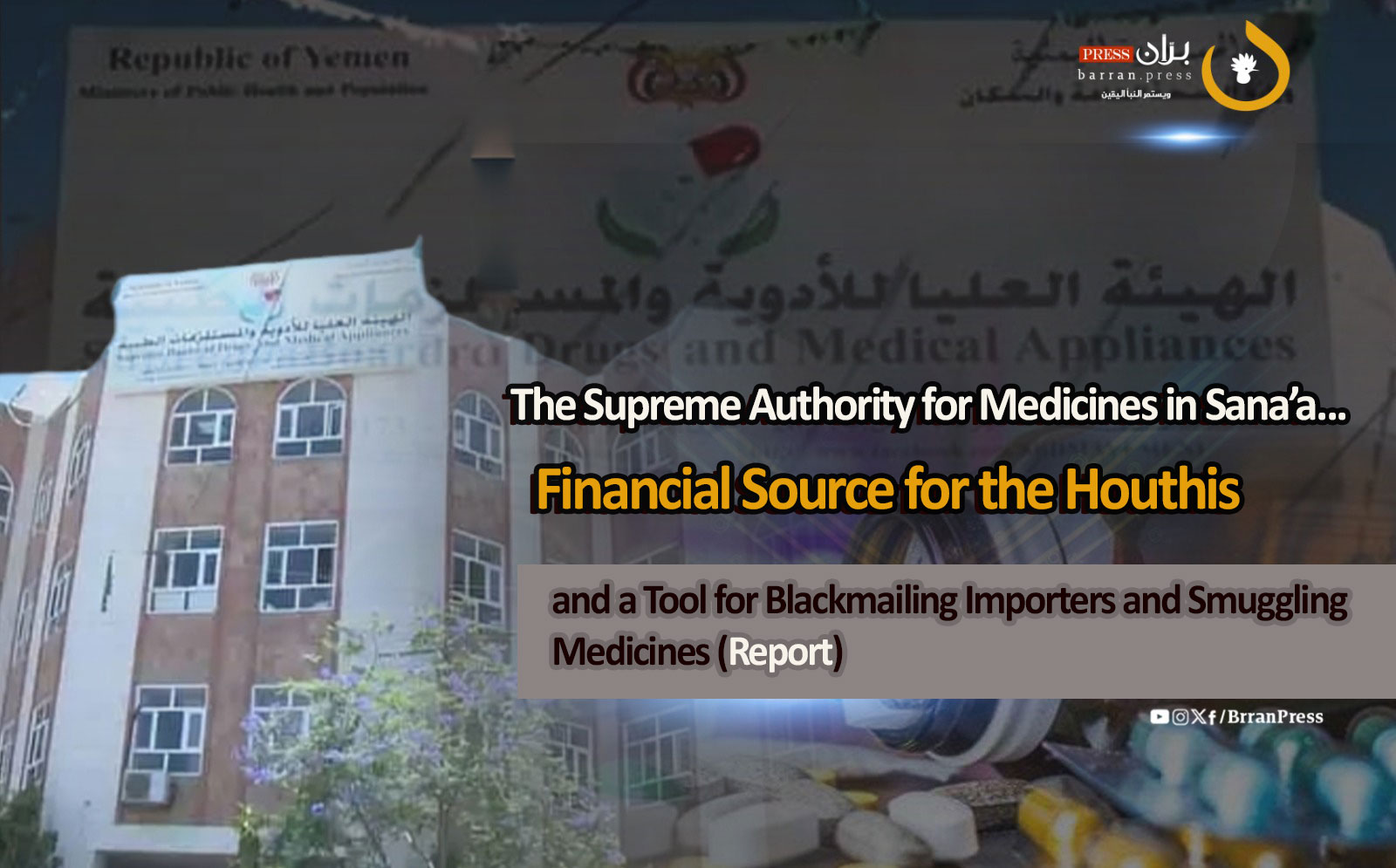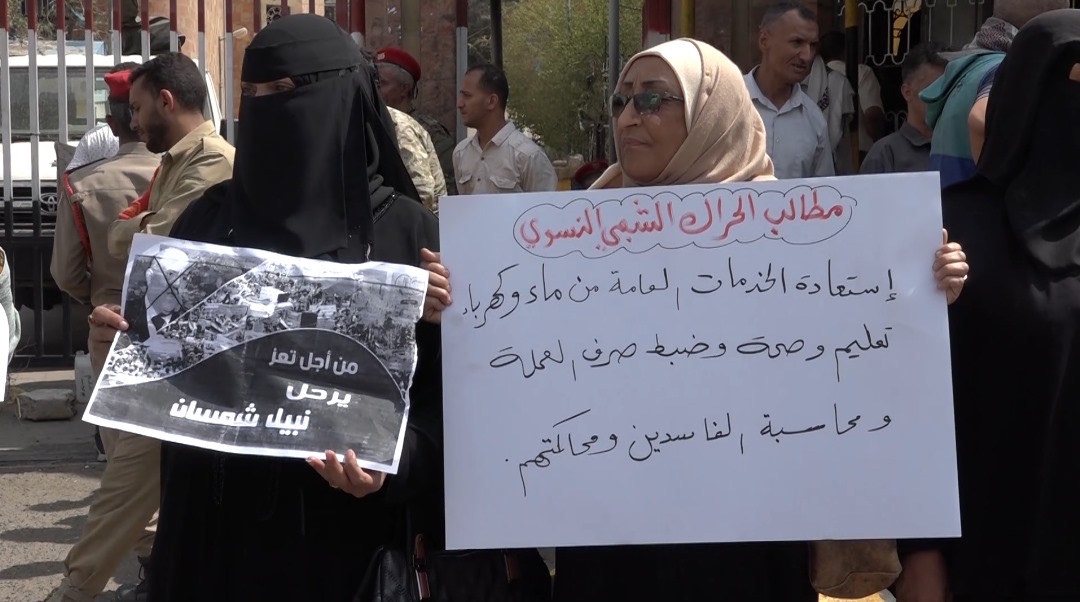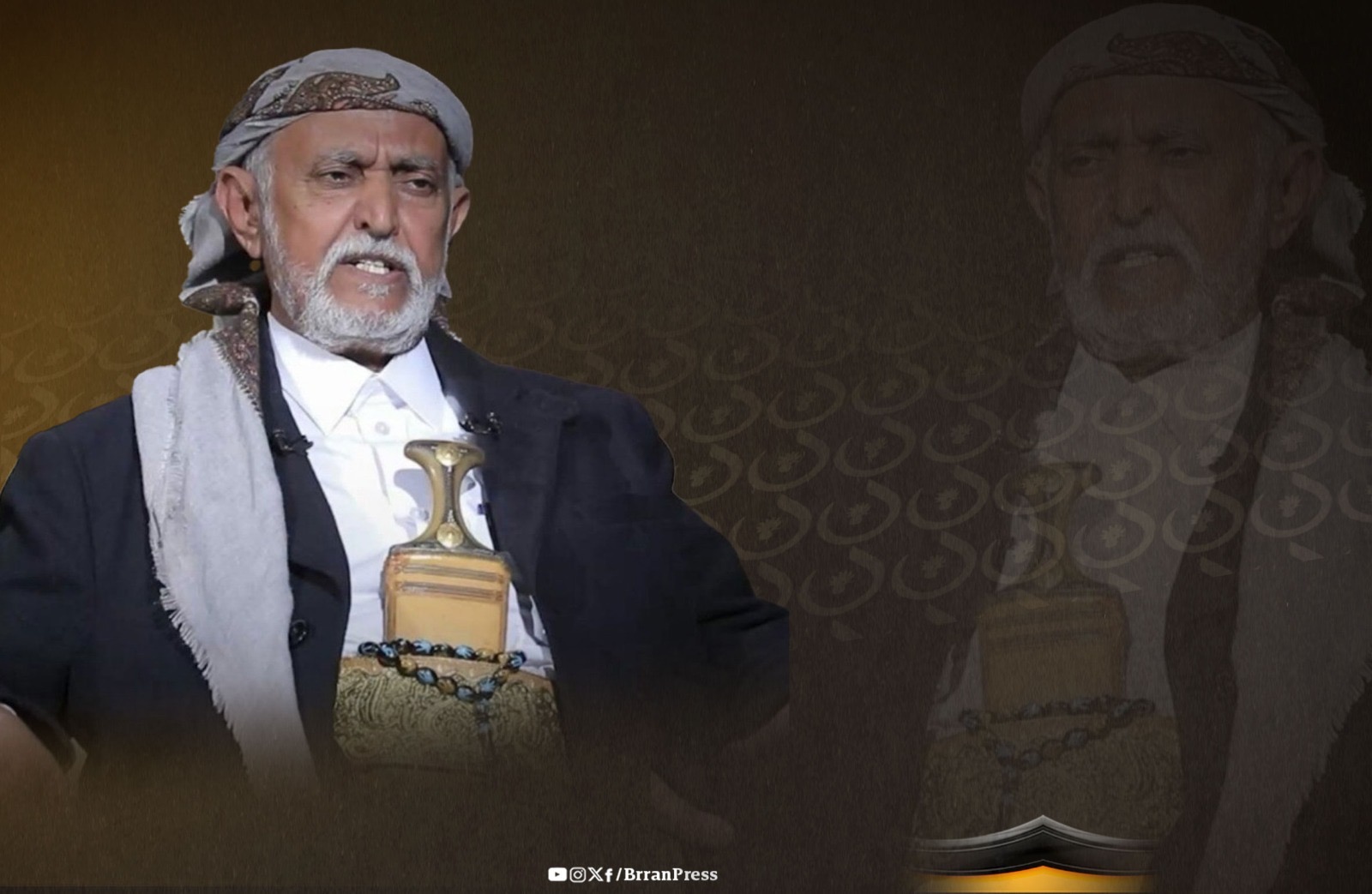
Barran Press - Reports Unit:
Established in 1971, the General Authority for Medicines and Medical Supplies in Sana'a was designed as an independent national institution tasked with regulating and providing safe, effective medications to citizens at reasonable prices. The authority was also responsible for conducting analyses and studies on new pharmaceutical products to ensure their compliance with safety standards.
However, since the Houthi takeover of Sana'a in September 2014, the authority's role has drastically changed. Sources within the Houthi-controlled Ministry of Health and the General Authority have revealed significant corruption within the agency, transforming it from a protective entity into a revenue-generating tool for the Houthi group, exploiting drug importers and facilitating the smuggling of banned medications.
Employees and insiders report that the lives of many Yemenis are now in “deadly danger” due to the Houthis' irresponsible practices, which prioritize the group's interests over public health, disregarding all laws and regulations.
Ethnic Loyalty Over Professionalism
A source from the authority disclosed that the Houthis have consistently appointed loyalists and members of specific ethnic groups to high-ranking positions, sidelining qualified professionals. This strategy has led to the removal of skilled pharmacists and drug analysis experts, effectively draining the agency of its expertise.
The insider lamented that the Houthis have marginalized many agency employees, stripping them of their responsibilities in drug monitoring, while newly appointed members of the group wield significant power within the authority.
A Corrupt Financial Lobby
A health ministry employee criticized the Houthi appointments within the authority, describing them as part of a "tribal lobby" that controls the agency's financial operations. He noted that the Houthis granted this lobby full authority to amass substantial funds from pharmaceutical agencies and local drug manufacturers in areas under their control.
According to him, the financial department of the authority is the real power behind its operations, with pharmacists having no say in decisions, which are dominated by the Houthi agenda.
He explained that, as with other institutions under Houthi control, the financial departments that collect revenues are led by individuals loyal to the Houthi agenda, executing the group's directives without question.
Financial Control Over Drug Regulation
The ministry employee further emphasized that the Houthi administration has consolidated power within the financial department, which now functions primarily as a means to gather funds and control the import and distribution of medicines.
He confidently stated that even the smallest employee in this financial department can interfere in various matters, obstructing importers based on their regional or tribal affiliations. This employee can even overturn decisions made by technical committees or the authority's leadership regarding the importation of life-saving medications.
Oppression
An employee of the Authority, who preferred to remain anonymous for security reasons, spoke to "Barran Press" about the suffering he and his former colleagues are experiencing. He said, "We suffer from opportunistic and unjust practices by a clique that follows the head of the Supreme Authority for Medicines."
He added that this suffering and what he described as "systemic injustice" they also face from the head of the Supreme Authority for Medicines, who was appointed by the Houthi group and is called "Ali Mohamed Abbas," who "stubbornly defends the clique that follows him, and refuses to give us any consideration."
He continued, "When we raise the suffering and problems we are exposed to from his new employees, he defends them, as he is their lawyer and guard with force, and he is the judge and the government."
In his interview with "Barran Press," he called on the Houthi group figures or individuals who have "a decision to lift the injustice against us, and reject the persecution we are exposed to by the head of the Authority and his clique."
He said that "the persecution has reached the point of preventing us from entering the Authority's building," concluding his speech by saying, "We hope to punish the lobby controlling the Authority, and restore justice for us from their oppression."
Extortion and Tribute
A specialist in the Authority spoke to "Barran Press" about what he described as the "extortion" that medicine importers are exposed to. He said they are subjected to "extortion, theft, and procrastination" by what he described as the "Houthi lobby" in the Supreme Authority for Medicines.
He added that the lobby "adopts a policy of imposing the payment of tribute on medicine importers, and rejects the laws and regulations in force in the import of medicines."
To clarify the mechanism of importing medicines, "Barran Press" communicated with a scientific supervisor in one of the national pharmaceutical companies, who spoke on condition of anonymity for security reasons. He said that "the import of medicines is carried out according to clear and specific procedures in the regulations and laws of the Supreme Authority for Medicines."
The procedures include "submitting an official request to the Authority under the name (request for approval to import medicines), which the head of the Authority refers to the Technical Committee to study it and find out the drug inventory and the extent of the drug market's need for it or not, and study the type and quality of the manufacturing company."
After completing the study of the request, "the response is either to import all the items or some of them, and then the request is handed over to the rapporteur of the Technical Committee."
Regarding the Houthis' procedures and their legality, he said that what they are doing "violates the applicable regulations and laws, and disregards them." Describing what is happening as a process of canceling laws and regulations and replacing them with the law of tribute.
He added that "the group has appointed a gang in the General Authority for Medicines that follows a policy of extortion, theft, and procrastination of drug importers in a cunning way, the purpose of which is to pay money."
Regarding these methods, he explained that they "are done by submitting the importers' import request informally through agents (brokers) who follow the head of the Authority in order to transfer the ready-made import approval request to the Technical Committee to approve it and give it a legal character, no more."
In order for the importer to continue his procedures and transactions in the Authority, he said, "the approval of the import request is transferred to the rapporteur of the Technical Committee called Ismail Al-Kuhlani."
He added that "the importer continues to follow up with Al-Kuhlani, week after week; in order to complete his transaction, and out of fear of the expiration of the specified legal period of two months (60 days), but to no avail."
Here he said: "The importer becomes desperate, as Al-Kuhlani continues to lie, maneuver, and procrastinate with complete indifference," adding that he "excels at mastering the methods of evasion and procrastination," and unfortunately, he said, "the head of the Authority considers this as one of Al-Kuhlani's advantages."
In the face of this reality, "the importer informs the head of the Authority orally of Al-Kuhlani's evasion and procrastination." Explaining that "importers cannot submit a written complaint against him; because they know that this will permanently cancel their request by the head of the Authority and Al-Kuhlani."
After the importer reaches "a state of despair and frustration; due to the competition between medicine importers and the importer's desire to keep his business, and the fact that the period for the final approval is about to end, the only option left for him is to pay the tribute to the Houthi gang."
In this case, he said, "the importer is forced to pay an amount of up to $3,000 in order to complete his transactions, and it is delivered to the head of the Authority, in complete secrecy."
The source confirmed that "dozens of monthly approvals for many medicine importers involve forcing them to pay about $3,000," and said that this "is one of the most important revenue streams from which the group earns huge sums of money."
Smuggling and taxes
According to a scientific supervisor speaking to Barran Press, the Houthi group has implemented policies facilitating the smuggling of medications into areas under their control, requiring smugglers to pay fees regardless of the drugs' safety or legality. These actions are purportedly legitimized by leaders within the Houthi-controlled Ministry of Health in Sana'a.
The supervisor lamented that the authority seems to have transformed into an organization that legitimizes and facilitates smuggling, flooding the market with thousands of counterfeit and unregulated medications without any genuine oversight.
Furthermore, new regulations imposed by the Houthis on drug importers force them to renew their licenses frequently, effectively extorting money with each renewal. Importers who haven’t introduced new products face additional financial pressures under these new requirements.
The Houthi group continues to enforce these exploitative measures while disregarding established laws. They are reportedly enhancing their electronic systems within revenue-generating institutions to further exploit importers. Recently, the authority launched an online portal, giving importers 30 days to rectify their legal status, threatening to revoke their registrations if they fail to comply—an apparent tactic aimed at coercing payments.





